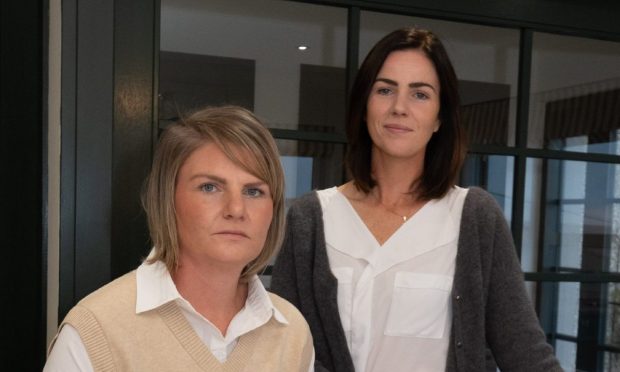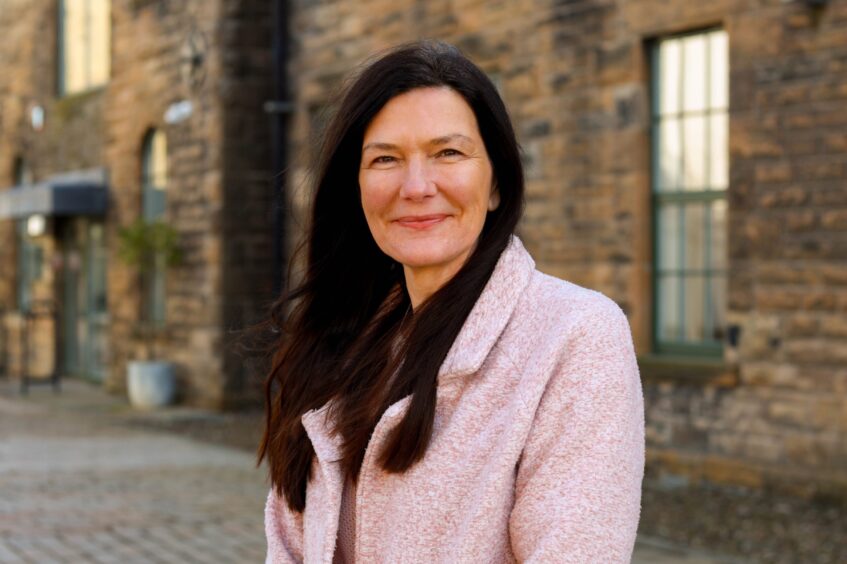
Hundreds of women suffering mental health issues after becoming pregnant or giving birth are being denied specialist care by NHS Scotland, we can reveal.
Even those women referred for psychiatric assessment may have to wait 10 months for treatment, according to nationwide research.
Information obtained from all Scotland’s 14 health boards exposes wide differences in the care available in each board and the information collected on referrals and waiting times.
Charities have voiced concern at the differences in specialist support but warned services will not improve unless all health boards begin routine collection of standardised, detailed data. The Scottish Government confirmed it does not collect information on perinatal and infant mental health waiting times.
The Maternal Mental Health Alliance (MMHA) last year warned only two health boards, Lothian and Greater Glasgow, deliver the highest-quality perinatal mental health care while there are no multi-disciplinary teams supporting women on Scotland’s islands.
Postcode lottery
Karen Middleton, head of campaigns and policy at MMHA, said the figures confirm women in need of specialist care are enduring a persistent postcode lottery.
She said: “What is needed are adequate resources and sustainable funding for services across Scotland to deliver high-quality, compassionate care. The recent announcement of a freeze on government mental health funding could place perinatal mental health care in a potentially vulnerable position.
“More than ever, sustained effort and investment is needed to ensure all women, babies, and families get they care they need.”
One in four mothers develop mental health issue as a result of pregnancy or childbirth with common conditions including postnatal depression, anxiety, psychosis and obsessive compulsive disorder. However, data obtained by The Post reveals at least 463 women seeking help for mental health problems triggered by pregnancy or childbirth last year received no treatment after assessment.
In Grampian, no patients had referrals closed after just one appointment while, in contrast, in Lothian, 340 women did not continue to a second appointment though the health board said some of those women were already receiving ongoing treatment.
They had already waited an average of 30 days for an appointment with a specialist. In Lanarkshire, the average was 11 days; in Tayside, 20 days; and, in Fife, 24 days.
Greater Glasgow & Clyde NHS said the average wait was 36 days but one woman did not see a specialist for 153 days.
The average wait for a second appointment in Glasgow was 72 days while the longest was 326 days. Meanwhile, 51 of 1,222 referrals in the board’s area were closed after one appointment.
The country’s health boards were asked how many referrals for perinatal mental health were closed after the first appointment; what the average wait was between referral and the first appointment for assessment; the longest wait for the first appointment; and the average wait between referral and a second appointment and the start of treatment?
However, the detail of information provided by the 14 boards varied widely with several saying they could or would not answer some or all of the questions as it would cost too much or because the information was not available.
Despite experts warning specialist care for women in the Highlands and Islands is a particular concern, Orkney and the Western Isles said it was impossible to give any detailed information while Shetland said it would cost too much to provide data.
The Scottish Government has cut £30m from mental health budgets prompting more concern for services considered by many experts to be already under-resourced.
While £5.7m was intended to be spent on perinatal mental health services by health boards last year almost half of them underspent because of problems in recruiting and retaining staff which, the charity believes, is partly linked to uncertainty around future funding.
‘Women are being failed every day’
Lesley McArthur, from Broughty Ferry, in Dundee, first suffered postpartum psychosis weeks after the traumatic, premature birth of her daughter in January 2019.
She is, along with her sister Margaret Reid, now campaigning for better psychiatric care for pregnant women and new mothers.
She said: “These figures exposing how specialist care for women in mental health crisis is based on their postcode is dismaying but sadly not surprising. Women enduring severe psychiatric trauma linked to pregnancy or childbirth are being failed every day and deserve urgent action.
“Many are waiting far too long for a first appointment, when the need for support and treatment could not be more urgent. Then when they finally are offered the help they need, it may be hundreds of miles from their home.”
Tess White, Scottish Conservative North East MSP and deputy health spokesperson, said the postcode patchwork of care is failing too many women. She said: “Massive cuts to the mental health budget have put even more strain on these under-resourced services. Warm words are not enough. Ministers must act now to deliver the specialist perinatal mental health care that women deserve, wherever they live.”
The Scottish Government said: “We have made substantial investment in perinatal and infant mental health services since 2019, with investment of over £10m in this year alone. This funding is delivering improvements to perinatal and infant mental health services.
“In addition, this month, announced the latest round of Perinatal and Infant Mental Health Fund, of up to £1.5 million to March 2025.”
Investment is needed in life-saving support
By Liz Nolan, Director of Children and Families at leading children’s charity Aberlour
It is deeply concerning but sadly not surprising that expert support available to women suffering mental illness linked to pregnancy and childbirth still depends on their postcode.
The information obtained from Scotland’s health boards only confirms the experience of Aberlour and other third sector organisations providing some of the urgent and specialist support demanded.
We are working tirelessly to offer the help needed but there are clearly not enough specialist support services in Scotland’s communities and no sign of the investment needed to create them.
Around one in four new and expectant mums will experience perinatal mental illness and services like ours are vital for families across Scotland to support the health of women, partners and their babies.
Our dedicated support services in Forth Valley, Edinburgh and the Lothians support new mums struggling with anxiety, depression and isolation during pregnancy and after their baby is born. Meanwhile, in Falkirk, our Intensive Perinatal Service supports mums in recovery from addiction.
These services have helped hundreds of women who might otherwise have been overwhelmed by mental health problems.
Women tell us the combination of emotional and practical support for them and their families at home and in the community has been “lifesaving”. One told us: “You have done so much for me and my family, I really don’t think I would be here in this world today without that help.”
Aberlour can only provide support in a limited geographical area, however, and too many women and their families have absolutely no access to perinatal services or support near them.
We see thresholds for accessing mental health services increasing, making it harder to get help and meaning we are receiving more referrals for women with complex mental health concerns.
Digital self-management programmes are an option but no replacement for dedicated services focusing on person centred support, trusting relationships and building connections in the community.
For women with alcohol and substance use issues, mental health care is still overlooked when responding to their needs and their recovery can be stalled without holistic support.
We are also seeing many women expecting another baby after giving birth during the pandemic in often difficult and traumatising circumstances. For some that past, unresolved trauma is now surfacing and impacting their mental health in the present.
The third sector plays a crucial role delivering perinatal services and support to women and their families to address many of these issues, but it is limited by a lack of funding and investment.
The reality is there are simply not enough existing community-based perinatal support services and no sign of the investment needed from Scottish Government or health and social care partnerships to deliver what is required across the country.
This must be prioritised urgently to end the postcode lottery in perinatal mental health care and ease what is becoming a worsening crisis.

Enjoy the convenience of having The Sunday Post delivered as a digital ePaper straight to your smartphone, tablet or computer.
Subscribe for only £5.49 a month and enjoy all the benefits of the printed paper as a digital replica.
Subscribe